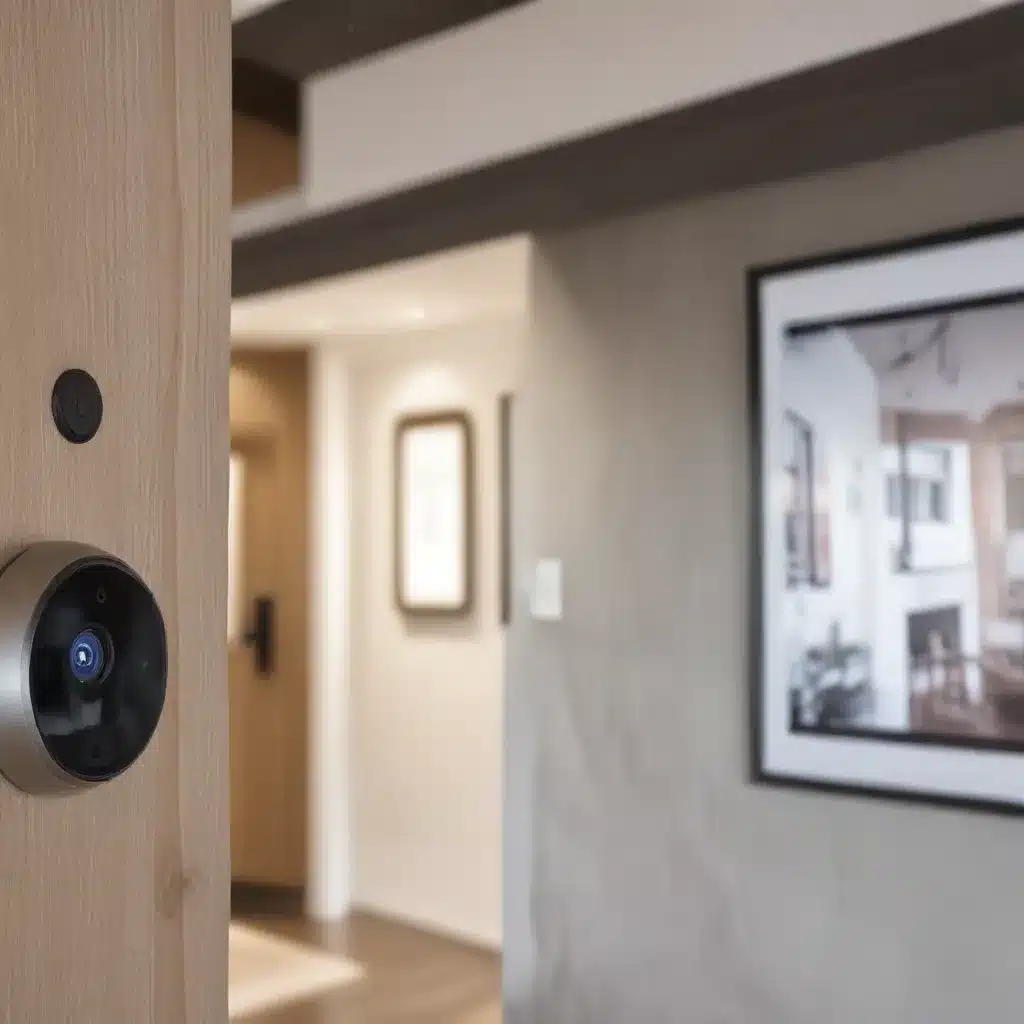
In today’s rapidly evolving technological landscape, smart home devices have become increasingly prevalent, transforming the way we interact with and secure our living spaces. As an experienced IT professional, I’ve witnessed firsthand how these innovative solutions can significantly enhance home security, providing homeowners with a greater sense of safety and control. In this comprehensive article, we’ll explore the top smart home devices that can bolster your home’s security and give you peace of mind.
Intelligent Home Monitoring Systems
At the heart of a robust home security setup are the monitoring systems that keep a vigilant eye on your property. Integrating a smart home security system can elevate your home’s protection to new heights. These systems often include a central control panel, motion sensors, door/window sensors, and strategically placed security cameras. The beauty of these systems lies in their ability to seamlessly integrate with your smartphone, allowing you to monitor and control your home’s security from anywhere.
One standout feature of modern smart home security systems is their integration with voice assistants like Amazon Alexa or Google Assistant. With simple voice commands, you can arm or disarm your security system, check the status of your home, and even receive alerts on suspicious activity. This hands-free control is particularly useful for homeowners who lead busy lifestyles or have mobility challenges.
Smart Locks and Access Control
Securing the entry points to your home is crucial, and smart locks offer an innovative solution. These advanced locks can be programmed to automatically lock or unlock based on your presence, eliminating the need to carry physical keys. Many smart locks also allow you to grant temporary access to guests or service providers, giving you complete control over who enters your home.
Beyond traditional locks, some smart home security systems incorporate biometric access control, such as fingerprint scanners or facial recognition. This added layer of security can help prevent unauthorized entry and provide valuable data on who has accessed your home and when.
Surveillance Cameras and Motion Detection
Strategically placed security cameras are a powerful tool in any smart home security setup. Modern IP-based cameras can be seamlessly integrated into your smart home network, allowing you to view live footage or recordings from your smartphone or tablet. Many of these cameras also feature motion detection capabilities, triggering alerts and recordings whenever movement is detected.
The latest generation of security cameras often boasts advanced features like facial recognition, allowing you to receive notifications when a familiar face is detected or an unknown individual approaches your home. Some cameras even integrate with other smart home devices, such as lights or sirens, to create a comprehensive security response.
Smart Lighting and Automation
Lighting plays a crucial role in home security, as it can deter potential intruders and provide visibility for your security cameras. Smart lighting solutions can be programmed to automatically turn on and off based on your presence or schedules, creating the illusion of an occupied home even when you’re away.
Moreover, some smart lighting systems can be integrated with your security cameras, motion sensors, or even voice assistants. This allows you to control your home’s lighting and create customized lighting sequences in response to security events, further enhancing the overall protection of your property.
Environmental Sensors and Water Leak Detection
Beyond traditional security measures, smart home devices can also safeguard your home from environmental threats. Intelligent water leak detectors, for example, can identify and alert you to the presence of water, potentially preventing costly damage from burst pipes or appliance malfunctions.
Similarly, smoke and carbon monoxide detectors with smart home integration can instantly notify you of potential hazards, allowing you to take immediate action. These sensors can even be programmed to automatically trigger other smart home devices, such as turning on lights or activating ventilation systems, to mitigate the threat.
Backup Power and Internet Redundancy
In the event of a power outage or internet disruption, the effectiveness of your smart home security system can be compromised. Investing in backup power sources, such as battery-powered devices or generators, can ensure your security system remains operational, even during a blackout.
Additionally, considering redundant internet connectivity options, such as cellular or satellite-based backup, can provide an alternative communication channel for your smart home devices. This redundancy can be particularly crucial in areas prone to natural disasters or infrastructure failures, safeguarding your home’s security even in the face of unexpected disruptions.
Securing Your Smart Home Devices
As you integrate more smart home devices into your security setup, it’s essential to prioritize their cybersecurity. Regularly updating your devices with the latest security patches, using strong passwords, and enabling two-factor authentication can help protect your home from potential cyber threats.
Additionally, it’s wise to review the privacy policies and data management practices of the manufacturers of your smart home devices. Understanding how your personal data is collected, stored, and used can help you make informed decisions about the devices you choose to incorporate into your home.
Conclusion
In the ever-evolving world of home security, smart home devices have emerged as powerful tools to enhance the protection of your living space. By leveraging intelligent monitoring systems, access control, surveillance cameras, and environmental sensors, you can create a comprehensive security solution that not only deters intruders but also safeguards your home from a multitude of threats.
As you explore the vast array of smart home security options, remember to prioritize devices that seamlessly integrate with your existing systems, provide reliable backup power, and prioritize cybersecurity. By embracing these innovative technologies, you can transform your home into a fortress of safety and security, giving you the peace of mind you deserve.
To learn more about integrating smart home solutions and improving your home’s overall security, I encourage you to explore the comprehensive resources available on ITFix. Our team of IT professionals is dedicated to providing practical tips, in-depth insights, and reliable solutions to help you enhance the safety and security of your living space.












